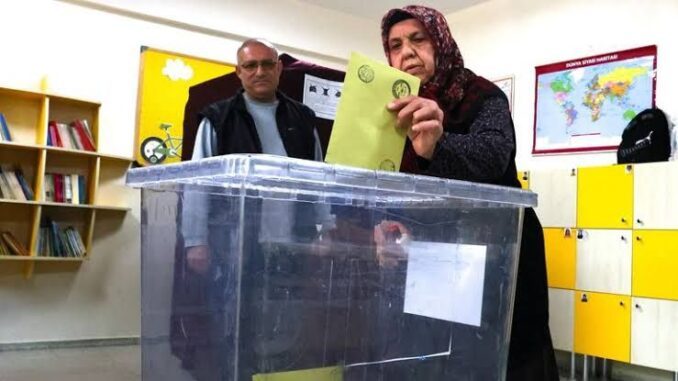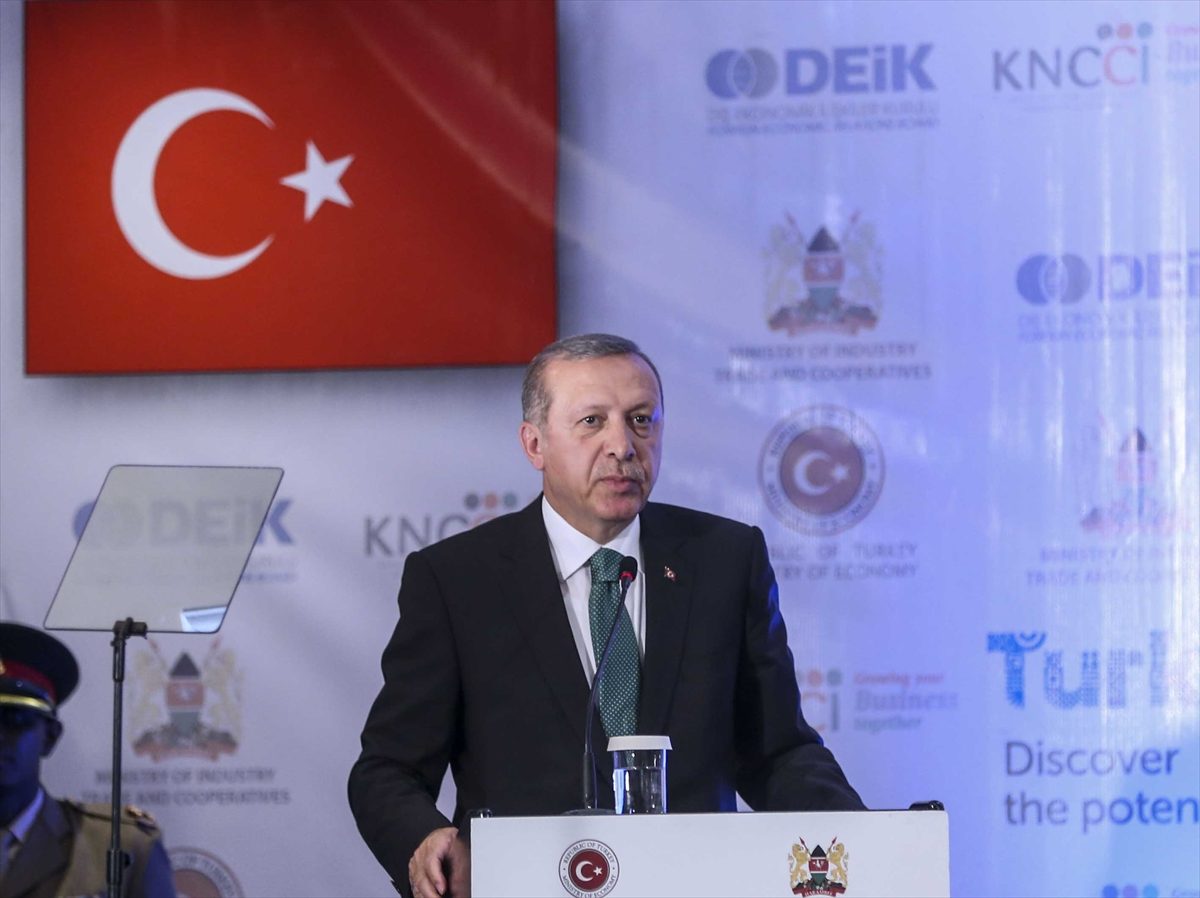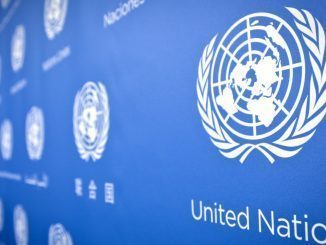
In the first round of the Turkish presidential elections held on May 14, neither candidate crossed the 50-percent mark for an outright win, triggering an unprecedented run-off vote.
On Sunday, 28 May, at 8:00 am. Turkish voters headed to the polls again to make a critical choice between Recep Tayyip Erdogan and opposition leader Kemal Kilicdaroglu.
Since the initial vote on May 14 – held alongside parliamentary elections that saw Erdogan’s party and its allies secure 323 out of 600 seats – the level of electioneering has been scaled back with both candidates forgoing the mass rallies seen previously.
In the first round, President Erdogan who took 49.52 percent of the votes to Kilicdaroglu’s 44.88 percent, on Saturday tweeted, “Tomorrow, let’s all go to the polls together for the Great Turkey Victory”.
“Let’s echo the will that was manifested in the parliament on May 14 to the presidency much more strongly this time. Let’s start the Century of Turkey with our votes.”
The president later attended a ceremony in Istanbul to mark the anniversary of a 1960 coup that led to the execution of Prime Minister Adnan Menderes, with whom Erdogan has often identified himself.
Meanwhile, Kilicdaroglu has pivoted to a more nationalist tone since the first round after a strong showing by right-wing voters who gave the third-placed, nationalist presidential candidate Sinan Ogan more than 5 percent.
“Whatever your view or lifestyle; I appeal to all our people. This is the last exit. Let those who love their homeland come to the ballot box!” Kilicdaroglu said in a message sent Saturday.
Turkish citizens living overseas have completed casting their ballots before election day. Some 1.9 million voted in 73 countries and at border gates, where the ballot boxes remain open until voting closes in Turkey.
The number of voters has been boosted by more than 47,500 voters who turned 18 over the past two weeks, taking the electorate in Turkey to nearly 60.8 million.
Why the West got it so wrong?
David Hearst, editor-in-chief of the London-based, Middle East Eye, on 24 May, wondered, in a piece, Why the West got the Turkish elections so wrong.
“The reality is that Erdogan is the most successful and most independent leader in the Middle East – and the West can no longer send armies and gunboats in to rectify that,” Hearst said, criticizing the biased position of Western countries against President Erdogan.
Western media used to bray that Turkey was on the way to dictatorship, but their view is increasingly out of touch with reality, the MEE editor-in-chief stated, adding that beside being “meaningless”, US President Joe Biden’s declared support for the Turkish opposition might have been “actively counterproductive”.
The first round of Turkey’s presidential election not only shocked the Western leaders and media, but it mainly shocked the opposition and it took them four days to recover. Such was their disarray in the interim that their presidential candidate was forced to release a video proving he was still there.
“I am here,” he shouted, banging the table with the palm of his hand. When his campaign restarted, a very different candidate appeared.
No sooner had he said this, than campaign posters went up on the billboards: “Suriyeliler gi-de-cek! Karar ver!” (translation: “Syrians will go! Decide!”)
In fact, the issue of Syrians in Turkey is not a small one. Turkey hosts the largest number of refugees worldwide, with 3.6 million Syrians and close to 320,000 “persons of concern” of other nationalities.
By late last year, some 530,000 Syrians had returned to the country from Turkey – but as MEE reported from Idlib, there is nowhere for them to return to. President Bashar al-Assad is not exactly laying out the red carpet for them.
Kilicdaroglu’s anti-Syrian rhetoric is even worse viewed from Idlib. Any withdrawal of Turkish troops or change of stance by Ankara could prompt a stampede of refugees to the border, as has happened before in that region in northern Iraq under Saddam.
The pro-Western stance of the new president would make talks with the Russians, Iranians and Assad even more complicated than it currently is. The balance of forces in northern Syria is a minefield, which could explode once more with international consequences. An under-briefed loudmouth pandering to populism is the last person you need as president in this situation.
Erdogan has also promised to send Syrians back, but he has noticeably stopped short of putting a timeline on it. “The open truth is that the refugees, asylum seekers, and so on, we have now returned to their dormitories to start with briquette houses in the north of Syria. But now we have a plan that one million refugees will return to the target. Of course, this will happen over time,” he said.
Wondering about whom he would trust more on this issue: a man who uses fear as a weapon in a campaign, or a man who says forcible repatriation is un-Islamic, David Hearst said that he would surely trust the latter.



